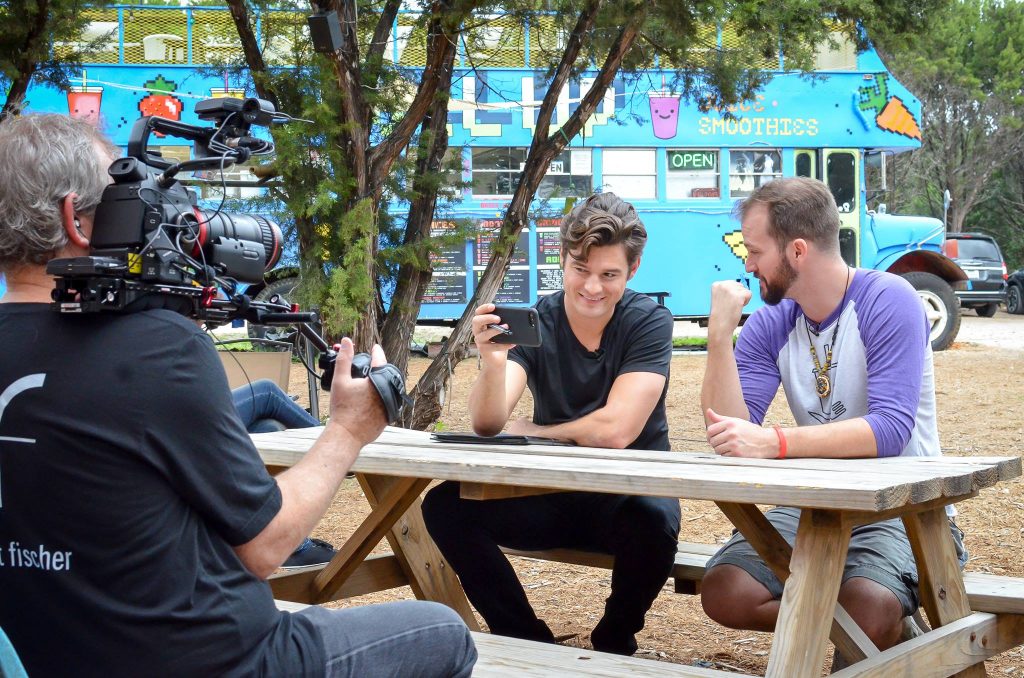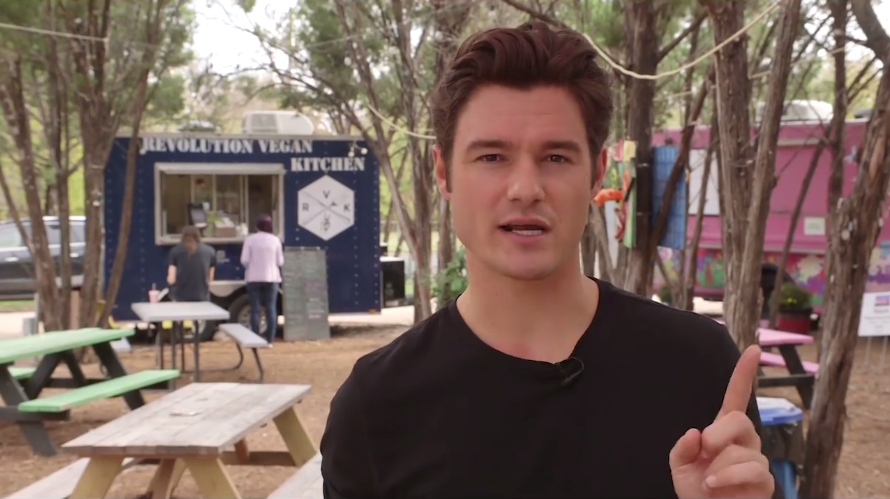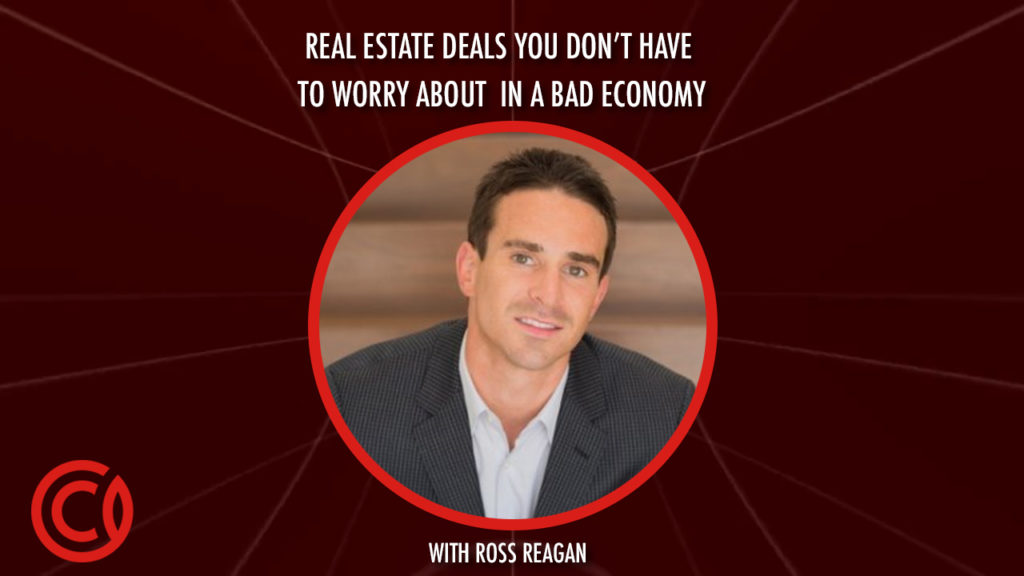Why is multi-millionaire, 27-year-old entrepreneur and host of the popular business podcast The Top Nathan Latka walking up to random food trucks in Austin, Texas and investing in them on the fly?
“It’s all about the returns,” says Latka, a self-proclaimed hustler, who sold his first company Heyo.com at age 26, and is now well on the path to achieving his goal of becoming a billionaire by the time he’s 30.
“When you start digging in unique places,” explains Latka, “there are much larger return opportunities on your cash.”
So, instead of investing his money in the stock market or in real estate (which he feels are currently overvalued and inflated), Latka is taking to the streets to find unique deals and encouraging others with investment capital to consider doing the same.
Get Richer, Faster in Today’s Market
“The stock market is easy, but anyone can play it, plus it’s too expensive right now with stocks not worth what they’re actually being sold for,” says Latka.
Tip: If you want to get richer, faster, find a unique deal with an owner who values your capital and will reward you for it, suggests Latka.
And he put his money where his mouth is earlier this month when he made one of his first food truck investments in Level Up ATX, a double decker food-bus in Austin, Texas, specializing in fresh juices.

It’s All About the Margins: Nathan’s ‘Level Up’ ATX Food Truck Deal
Walking through Thicket Food Park with checkbook in hand, Latka chose Level Up at complete random. However, when he started talking with Level Up owner Robin Putman, he liked what he heard about the food truck’s margins.
Based on Level Up’s margin of approximately $3.00 (with an average cost of sale around $4.00 and average sale amount of $7.58) and 2017 revenue of $168,000 (which remained flat year over year from 2016), Nathan wrote Level Up owner Robin a $10,000 check on-the-spot in exchange for:
Putnam’s margins provided Nathan with the confidence that there was a way he could get paid back his initial food truck investment.
In a good month, Putnam sells about 1,000 drinks/meals, which at $1.50 per sale, Latka expects to recoup his initial $10,000 investment in about eight months and then receive $0.10 per sale in perpetuity.
“The returns I get with my food truck investment are much better than I would get investing in the market,” says Latka. “You can’t just put $10,000 in the S&P and get a return on your investment in perpetuity.”
The End Game: If We Can Scale It, We Can Sell It
The ultimate goal: Grow Level Up’s enterprise value, open up other locations and sell the entire business. If one of Level Up’s food truck locations does well, then Putnam and Latka can open up other locations.
“That’s how my 5% and Robin’s 95% equity becomes valuable,” explains Latka. “We could sell the business for anywhere from $50-$100 million and get a big payout.”
Invest in People
It’s not just about the numbers. Latka also looks for some important personal qualities in the entrepreneurs he invests in.
Persistence: Level Up owner Putnam spent months going to the same firehouse to get the necessary permits to run his business.
“People that win in life are the people that do the same thing longer than anyone else,” says Nathan. It’s similar to walking out of your house in a rain storm and seeing that one spot on the corner that’s slowly worn down because for the last thirty years, the rain drops in the same place, cutting through stone, soil or anything else. According to Latka, that’s the value of persistency.
Drive: Prior to Level Up, Putnam worked at the largest juice business in Austin and felt he deserved equity in the company for his contributions. However, when the owner of that business said no, Putnam was prepared to walk away and started his own business — Level Up — to compete.
Latka believes that if you are contributing to a company, then you “own your own labor.” And, if you feel like you are adding a lot of value to that company, then you should ask to be compensated properly. However, while asking for equity “is a great move,” you should be prepared if the owner says no, warns Latka, and have a good other option.
“Unlike Robin, most people never create a good second option for themselves, so they get stuck in the same job/rat race,” explains Latka.
Community-Minded: Putnam hosts free movies for the community every Thursday night outside of his food truck.
“While it’s obviously a smart business move for Robin,” Latka says. “I like putting my money behind entrepreneurs that are doing good for the community.”
Doing Business 'The New Rich' Way, With 10 to 20 Streams of Income
Nathan describes the "New Rich” as people that value their time, want to travel more and have more freedom. This includes acquiring 10 to 20 streams of income, without needing to think about how these income streams are coming in every day.
According to Nathan, here are the three keys to successfully doing business the "New Rich” way:







